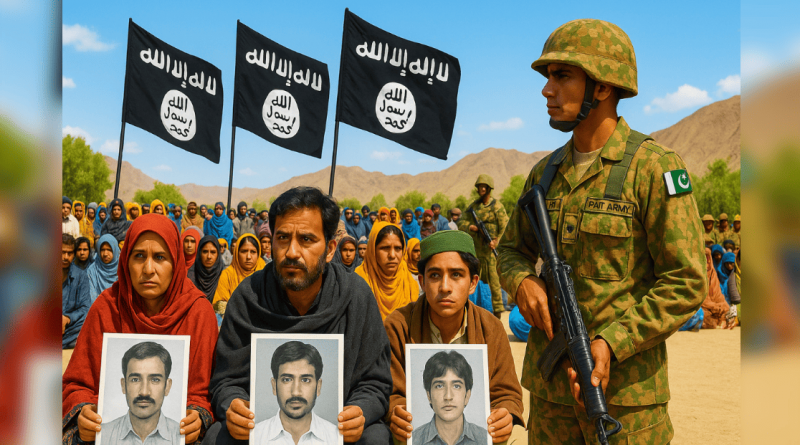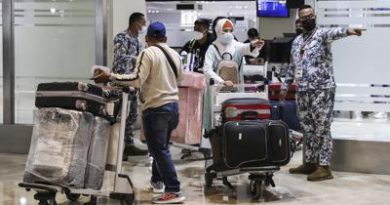Pakistan’s Deadly Playbook: How the Army Weaponizes Extremism in Balochistan
The world must confront an uncomfortable truth: Pakistan does not merely fight extremism—it manufactures it, repurposes it, and unleashes it on its own people.
For decades, Pakistan’s security establishment has perfected a dangerous strategy: using extremist groups as tools of statecraft. While presenting itself as a frontline ally in the “war on terror,” Islamabad has quietly nurtured violent networks to crush dissent, manipulate politics, and control narratives. Nowhere is this duplicity more visible than in Balochistan, Pakistan’s largest yet most neglected province, where Daesh-linked groups and sectarian militias operate under the shadow of state protection.
Daesh Sanctuaries in the Heart of Balochistan
Daesh has publicly admitted to having sanctuaries in Mastung and Khuzdar, two regions that were once strongholds of sectarian militants. Instead of dismantling these extremist hubs, Pakistan’s establishment allegedly repurposed them for political utility. Militants who once targeted Shias were redirected towards suppressing Baloch nationalists and silencing voices of dissent.
These sanctuaries offered more than mere safe haven. Training camps, recruitment networks, and financial channels enabled extremists to extend their reach across the province and beyond. Evidence points to these camps being linked to suicide bombings in Sindh and massacres of Hazara Shias in Quetta, demonstrating that Balochistan’s militancy is not isolated but integrated into a nationwide terror infrastructure.
The Rise of Shafiq Mengal: From Extremist Recruit to State Asset
A central figure in this playbook is Shafiq Mengal, son of former Balochistan Chief Minister Naseer Mengal. After leaving Aitchison College, he immersed himself in a Deobandi seminary and developed links with Lashkar-e-Taiba, a group long accused of enjoying state patronage. By the mid-2000s, the Inter-Services Intelligence (ISI) had reportedly recruited him as a pro-state tribal leader.
Mengal founded the Musalla Diffa Tanzeem, a militia that became synonymous with abductions, torture, and extrajudicial killings. His death squads targeted activists, students, and poets who championed Baloch rights. What began in Khuzdar soon spread to Wadh, transforming peaceful regions into hubs of sectarian terror. Under Mengal’s leadership, extremists flourished, often acting with complete impunity.
Pakistan’s “Kill-and-Dump” Strategy
Since 2008, Balochistan has witnessed a grim pattern of disappearances and executions, a policy critics describe as “kill-and-dump.” Death squads like Mengal’s were instrumental in executing this strategy on behalf of the state.
A grenade attack on a Baloch Students Organization (BSO-Azad) rally took place in 2010. This was followed by targeted assaults on cultural events, which killed and crippled young participants. Abductions and executions of minors, such as Balaach and Majeed Zehri, further deepened the climate of fear.
Each incident reinforced the perception that Pakistan’s security agencies outsourced their dirtiest operations to extremists. This outsourcing provided deniability to the Army while terrorizing Baloch civil society into silence.
The impact of these networks was not confined to Balochistan. Suicide bombings in Sindh’s Shikarpur, targeted killings of Hazara Shias, and assassination attempts on political leaders like MQM’s Khawaja Izhar-ul-Haq all traced their roots back to Wadh’s training camps.
In 2016, the first captured Daesh suicide bomber confessed that he had been trained in Wadh, and that his explosive vest was assembled by a handler named “Maaz.” Such revelations highlight how Balochistan’s extremist infrastructure fed directly into Pakistan’s broader sectarian and political violence.
The Double Game of Pakistan’s Establishment
The strategic logic behind nurturing militias becomes clear when examining their political utility. Baloch nationalist leaders, students, and intellectuals became primary targets of Mengal’s squads. Writers, poets, and activists who articulated demands for rights were branded “Indian agents” and eliminated.
Even established politicians, including Sardar Akhtar Mengal, accused the Army of arming and protecting militias to suppress nationalist movements. The complicity extended deep into the political class. Caretaker Interior Minister Sarfraz Bughti, for example, has been accused of maintaining his own militia. This convergence of politics, militancy, and military patronage reveals how entrenched the system has become.
Pakistan’s security establishment has long practiced a dangerous double game. While presenting itself to Washington, Brussels, and Riyadh as a committed partner against extremism, it simultaneously sustains militias for “strategic depth.” In Balochistan, these groups are deployed to weaken nationalist movements. In regional politics, they offer Islamabad leverage in Afghanistan and India.
Figures like Shafiq Mengal are the byproduct of this strategy: once extremists, later repackaged as state allies, always indispensable for maintaining control. Meanwhile, dissenting voices are silenced through fear, exile, or assassination.
The Real Terror Factory
Behind the headlines lies a deeply human tragedy. Families of missing persons gather daily in Quetta and other cities, holding photographs of sons, brothers, and fathers who vanished at the hands of militias or security forces. Their peaceful protests are often met with indifference—or outright repression. Even demonstrations in Islamabad demanding accountability have been crushed, underscoring the hypocrisy of Pakistan’s claims to democratic governance.
Civil society remains caught between the hammer of the Army and the anvil of extremists. While families demand answers, groups like Daesh and Mengal’s militias operate with apparent freedom, enjoying access to weapons, vehicles, and funding.
Balochistan offers a sobering lesson in how states can manufacture and weaponize extremism for political ends. The Daesh footprint in the province is not merely about sectarian violence; it reflects a deeper policy of political engineering and state-backed terror.
The career of Shafiq Mengal illustrates this dangerous nexus. From jihadi recruit to Army asset, his rise exemplifies how Pakistan’s establishment uses extremists to crush dissent, control politics, and maintain its dominance.
The world must confront an uncomfortable truth: Pakistan does not merely fight extremism—it manufactures it, repurposes it, and unleashes it on its own people. Until this duplicity is acknowledged, Balochistan will remain a killing field where freedom is strangled, and extremists act as the silent enforcers of military power.


